 Most cells in the human body need vitamin D. The nutrient also has an important role in preventing symptoms and diseases that may occur after menopause – including osteoporosis, muscle weakness, dry mucosa, mood swings, cardiovascular disease, type 2 diabetes, and cancer. In an article that is published in Frontiers in Physiology, the authors address the widespread vitamin D deficiency that is an overlooked problem in post-menopausal women, and they suggest striving to have optimal vitamin D levels in the blood throughout life.
Most cells in the human body need vitamin D. The nutrient also has an important role in preventing symptoms and diseases that may occur after menopause – including osteoporosis, muscle weakness, dry mucosa, mood swings, cardiovascular disease, type 2 diabetes, and cancer. In an article that is published in Frontiers in Physiology, the authors address the widespread vitamin D deficiency that is an overlooked problem in post-menopausal women, and they suggest striving to have optimal vitamin D levels in the blood throughout life.
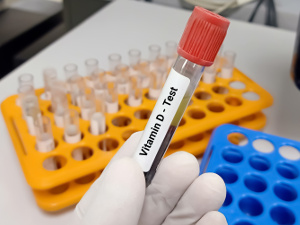 Blood levels of vitamin D serve as an early indicator of future health problems such as cardiovascular disease, osteoporosis, and cancer, according to a review article that was presented recently to the European Society of Endocrinology. Lack of vitamin D is rather common and a threat to public health, which is why the scientists suggest measuring levels of total vitamin D and free vitamin D in the blood. By optimizing levels of the nutrient in the blood it is possible to prevent a host of different lifestyle diseases as well as early death. It is not enough just to take any random vitamin D supplement. It must contain the right dose and have good absorption in order to be able to optimize vitamin D levels in the blood.
Blood levels of vitamin D serve as an early indicator of future health problems such as cardiovascular disease, osteoporosis, and cancer, according to a review article that was presented recently to the European Society of Endocrinology. Lack of vitamin D is rather common and a threat to public health, which is why the scientists suggest measuring levels of total vitamin D and free vitamin D in the blood. By optimizing levels of the nutrient in the blood it is possible to prevent a host of different lifestyle diseases as well as early death. It is not enough just to take any random vitamin D supplement. It must contain the right dose and have good absorption in order to be able to optimize vitamin D levels in the blood.
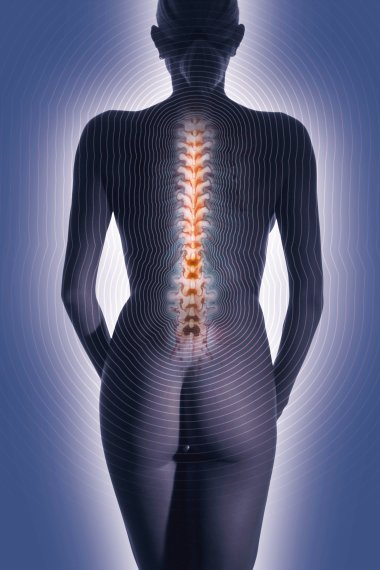 An adult contains around one kilogram of calcium, which is the most abundant mineral in the human body. Bones and teeth store around 99% of our calcium and 1 per cent is used to support metabolic functions. Levels of calcium in the blood are tightly controlled, as the slightest deviations may result in serious symptoms of the nervous system and the heart.
An adult contains around one kilogram of calcium, which is the most abundant mineral in the human body. Bones and teeth store around 99% of our calcium and 1 per cent is used to support metabolic functions. Levels of calcium in the blood are tightly controlled, as the slightest deviations may result in serious symptoms of the nervous system and the heart.
A variety of common health problems are linked to low levels of the “sunshine vitamin”. Are you getting enough of this vital nutrient?
- how to find the best alternatives for strong bones
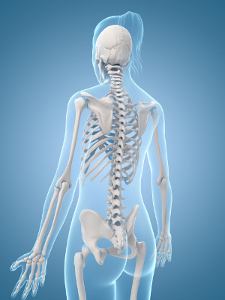 Many people avoid dairy products because they are lactose intolerant, are vegan, or for other reasons. Milk is a good source of nutrients, especially calcium, but you can easily get enough calcium from other food sources. What is more, it appears that vitamin D, vitamin K2, and the calcium/magnesium ratio is even more important than calcium alone for the structure and maintenance of strong bones. Another thing to remember is that sugar, soft drinks, stimulants, and certain types of medicine can disrupt the bone-building processes. Therefore, having strong bones is about a lot more than dairy products and calcium alone. Finally, don’t forget that daily weight-bearing exercise stimulates bone density.
Many people avoid dairy products because they are lactose intolerant, are vegan, or for other reasons. Milk is a good source of nutrients, especially calcium, but you can easily get enough calcium from other food sources. What is more, it appears that vitamin D, vitamin K2, and the calcium/magnesium ratio is even more important than calcium alone for the structure and maintenance of strong bones. Another thing to remember is that sugar, soft drinks, stimulants, and certain types of medicine can disrupt the bone-building processes. Therefore, having strong bones is about a lot more than dairy products and calcium alone. Finally, don’t forget that daily weight-bearing exercise stimulates bone density.
 PMS (Premenstrual Syndrome) entails a long list of symptoms such as headaches, mood swings, fatigue, irritability, fluid retention, and a strong craving for sweets and stimulants - and even a desire for divorce.
PMS (Premenstrual Syndrome) entails a long list of symptoms such as headaches, mood swings, fatigue, irritability, fluid retention, and a strong craving for sweets and stimulants - and even a desire for divorce.
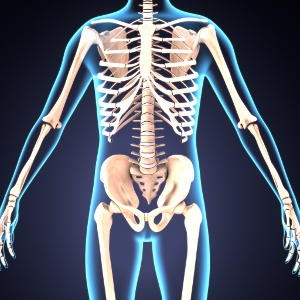 Vitamin C is important for bone density. A deficiency of the nutrient actually increases the risk of osteoporosis. Patients suffering from Crohn’s disease, ulcerative colitis, and other inflammatory bowel diseases often lack vitamin C and that adds even more to their risk. It is also a problem when normal, healthy people eat a vitamin C-deficient diet, and it becomes even more critical when people with chronic bowel diseases eat a diet with too little vitamin C. Vitamin C has a number of other functions in the body that are of importance to the immune system and the gut flora. Also, our genes for utilizing vitamin C play a role, according to a new study from Poznan University and Human Genetics Polish Academy of Sciences in Poland.
Vitamin C is important for bone density. A deficiency of the nutrient actually increases the risk of osteoporosis. Patients suffering from Crohn’s disease, ulcerative colitis, and other inflammatory bowel diseases often lack vitamin C and that adds even more to their risk. It is also a problem when normal, healthy people eat a vitamin C-deficient diet, and it becomes even more critical when people with chronic bowel diseases eat a diet with too little vitamin C. Vitamin C has a number of other functions in the body that are of importance to the immune system and the gut flora. Also, our genes for utilizing vitamin C play a role, according to a new study from Poznan University and Human Genetics Polish Academy of Sciences in Poland.
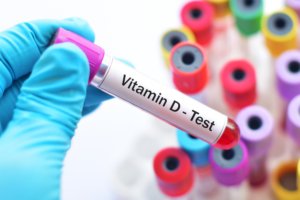 Expecting mothers should pay careful attention to getting enough vitamin D all year round, especially because vitamin D deficiencies are so commonplace, to begin with. Lack of vitamin D at birth and the first years of life is associated with an increased risk of infant hypertension, and the problem can even continue to adulthood. This was shown in a study that is published in the science journal Hypertension. The researchers advise pregnant women to have their vitamin D levels measured, and they even recommend vitamin D supplements for pregnant women and children as a way of preventing elevated blood pressure later in life.
Expecting mothers should pay careful attention to getting enough vitamin D all year round, especially because vitamin D deficiencies are so commonplace, to begin with. Lack of vitamin D at birth and the first years of life is associated with an increased risk of infant hypertension, and the problem can even continue to adulthood. This was shown in a study that is published in the science journal Hypertension. The researchers advise pregnant women to have their vitamin D levels measured, and they even recommend vitamin D supplements for pregnant women and children as a way of preventing elevated blood pressure later in life.
- for longer periods
 Vitamin D’s role in maintaining proper health is well documented. Still, many older people lack the nutrient and that increases their risk of bone fractures, blood poisoning, and disease complications that can eventually lead to hospitalization. Also, they risk prolonged hospitalization according to a new Irish study published in the scientific journal Nutrients. The scientists recommend giving vitamin D supplements to seniors to increase their blood levels of vitamin D. Other studies even suggest that this can protect against COVID-19, as low vitamin D status is associated with an increased risk of being hospitalized with the disease.
Vitamin D’s role in maintaining proper health is well documented. Still, many older people lack the nutrient and that increases their risk of bone fractures, blood poisoning, and disease complications that can eventually lead to hospitalization. Also, they risk prolonged hospitalization according to a new Irish study published in the scientific journal Nutrients. The scientists recommend giving vitamin D supplements to seniors to increase their blood levels of vitamin D. Other studies even suggest that this can protect against COVID-19, as low vitamin D status is associated with an increased risk of being hospitalized with the disease.
- which may lead to serious physical and mental diseases
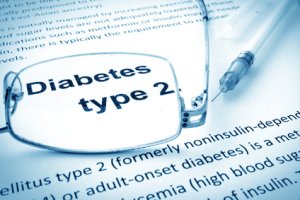 Recent studies reveal that around 20% of people who take metformin, a drug against type 2 diabetes, are vitamin B12 deficient (or borderline deficient). Lack of vitamin B12 may cause anemia, increased risk of osteoporosis, and symptoms of the nervous system that may be confused with ageing processes. It even looks as if lifestyle changes may have a more positive effect on blood sugar management.
Recent studies reveal that around 20% of people who take metformin, a drug against type 2 diabetes, are vitamin B12 deficient (or borderline deficient). Lack of vitamin B12 may cause anemia, increased risk of osteoporosis, and symptoms of the nervous system that may be confused with ageing processes. It even looks as if lifestyle changes may have a more positive effect on blood sugar management.
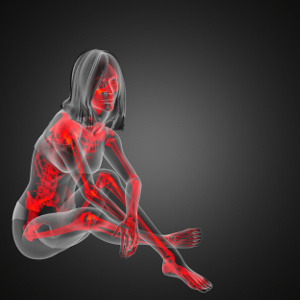 Calcium and vitamin D normally get all the attention when it comes to bone health. However, magnesium also plays a crucial, but often overlooked, role. This was demonstrated in a large population study that is published in Frontiers in Nutrition. The study links lower dietary magnesium to a greater risk of developing osteoporosis, especially for women aged 55 years and older. Osteoporosis normally takes many years to develop so it is vital to get plenty of magnesium from the diet or from supplements. Also, beware that excessive calcium intake, antacids, and diuretics block the body’s ability to absorb and utilize magnesium.
Calcium and vitamin D normally get all the attention when it comes to bone health. However, magnesium also plays a crucial, but often overlooked, role. This was demonstrated in a large population study that is published in Frontiers in Nutrition. The study links lower dietary magnesium to a greater risk of developing osteoporosis, especially for women aged 55 years and older. Osteoporosis normally takes many years to develop so it is vital to get plenty of magnesium from the diet or from supplements. Also, beware that excessive calcium intake, antacids, and diuretics block the body’s ability to absorb and utilize magnesium.
- and read more about why too much calcium and overconsumption of dairy products can be harmful
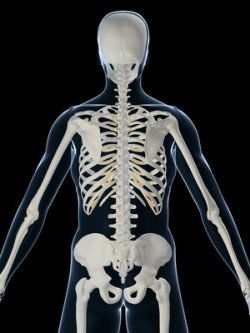 Fragile bones, also known as osteoporosis, is an insidious scourge. Science has its eyes on calcium and vitamin D, but osteoporosis may also be a result of getting too little vitamin K2 and magnesium, both of which are nutrients that must be properly balanced with calcium. If not, calcium may do more harm than good. Carbonated beverages, stimulants, and medicine (including statins) may also interfere with the bone-building processes. Therefore, strong bones require a lot more than calcium, and it is also important to remember daily, bone-challenging exercise.
Fragile bones, also known as osteoporosis, is an insidious scourge. Science has its eyes on calcium and vitamin D, but osteoporosis may also be a result of getting too little vitamin K2 and magnesium, both of which are nutrients that must be properly balanced with calcium. If not, calcium may do more harm than good. Carbonated beverages, stimulants, and medicine (including statins) may also interfere with the bone-building processes. Therefore, strong bones require a lot more than calcium, and it is also important to remember daily, bone-challenging exercise.
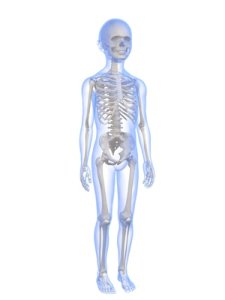 We consume far too much sugar from candy, soft beverages or in the form of concealed sugar in our food. This impairs the body’s uptake and utilization of calcium and magnesium. Sugar can skew the body’s mineral balance, thereby setting the stage for osteoporosis and an increased fracture risk caused by minor strains. Children and youngsters are particularly prone to bone weakening and osteoporosis from an early age, which is why there is good reason to lower the threshold level for sugar intake.
We consume far too much sugar from candy, soft beverages or in the form of concealed sugar in our food. This impairs the body’s uptake and utilization of calcium and magnesium. Sugar can skew the body’s mineral balance, thereby setting the stage for osteoporosis and an increased fracture risk caused by minor strains. Children and youngsters are particularly prone to bone weakening and osteoporosis from an early age, which is why there is good reason to lower the threshold level for sugar intake.
- that can often be remedied with simple diet changes and specific supplements
 The number of Danes suffering from one or several chronic diseases is a lot higher than previously thought, according to a group of scientists behind a new study from Danish Center for Healthcare Improvement at Aalborg University. Diseases such as hypertension, elevated cholesterol, depression, bronchitis, asthma, type 2 diabetes, rheumatism, and osteoporosis are among the most widespread ailments. Although there may be a reason of underlying factors, diet and lack of essential nutrients often play a key role. This is something that we have written about over the years on this website, and we have tried to gather some facts from various articles. Simple diet changes and the use of relevant nutritional supplements may play a key role in the treatment of these chronic ailments that come at a huge price, both to the individual sufferer and to society.
The number of Danes suffering from one or several chronic diseases is a lot higher than previously thought, according to a group of scientists behind a new study from Danish Center for Healthcare Improvement at Aalborg University. Diseases such as hypertension, elevated cholesterol, depression, bronchitis, asthma, type 2 diabetes, rheumatism, and osteoporosis are among the most widespread ailments. Although there may be a reason of underlying factors, diet and lack of essential nutrients often play a key role. This is something that we have written about over the years on this website, and we have tried to gather some facts from various articles. Simple diet changes and the use of relevant nutritional supplements may play a key role in the treatment of these chronic ailments that come at a huge price, both to the individual sufferer and to society.
 Undernourishment typically affects the elderly, those with diseases, addicts, and people with eating disorders. The condition increases the risk of serious diseases and repeated hospitalizations and is an enormous economic burden to society. Many undernourished people suffer from loss of appetite, a problem that can often be stimulated with improved diets and supplements of B vitamins.
Undernourishment typically affects the elderly, those with diseases, addicts, and people with eating disorders. The condition increases the risk of serious diseases and repeated hospitalizations and is an enormous economic burden to society. Many undernourished people suffer from loss of appetite, a problem that can often be stimulated with improved diets and supplements of B vitamins.
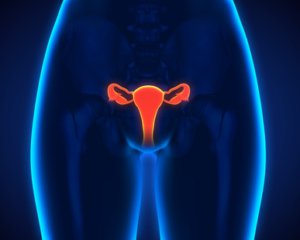 According to a large American study, a high dietary intake of vitamin D and calcium is associated with a lower risk of early-onset menopause, where the menstrual periods cease before a woman reaches 45 years of age. Premature menopause affects around 10 percent of women, and the condition increases the risk of impaired fertility, osteoporosis, cardiovascular disease, and earlier cognitive impairment. The prevention of these diseases is also a matter of getting enough sunshine, magnesium, and omega-3.
According to a large American study, a high dietary intake of vitamin D and calcium is associated with a lower risk of early-onset menopause, where the menstrual periods cease before a woman reaches 45 years of age. Premature menopause affects around 10 percent of women, and the condition increases the risk of impaired fertility, osteoporosis, cardiovascular disease, and earlier cognitive impairment. The prevention of these diseases is also a matter of getting enough sunshine, magnesium, and omega-3.
- and avoiding life-threatening complications
 Hip fractures are particularly common among older people and are often associated with a number of serious complications. However, seniors that are not vitamin D-deficient may have better chances of walking again after their surgery, according to a new study that is published in the American Journal of Clinical Nutrition. Earlier Danish research even shows that having sufficient amounts of vitamin Din your blood lowers the risk of dying of serious complications after sustaining a fractured hip. Therefore, the scientists recommend that all older people take a high-dosed vitamin D supplement daily and that they have their vitamin D levels measured when they are admitted in the hospital.
Hip fractures are particularly common among older people and are often associated with a number of serious complications. However, seniors that are not vitamin D-deficient may have better chances of walking again after their surgery, according to a new study that is published in the American Journal of Clinical Nutrition. Earlier Danish research even shows that having sufficient amounts of vitamin Din your blood lowers the risk of dying of serious complications after sustaining a fractured hip. Therefore, the scientists recommend that all older people take a high-dosed vitamin D supplement daily and that they have their vitamin D levels measured when they are admitted in the hospital.
 Vitamin K is lipid-soluble and was discovered by the Danish professor and Nobel Prize laureate Henrik Dam. There are three different forms with different functions. Vitamin K1 is primarily found in green plants, whereas vitamin K2 is produced by bacteria, and vitamin K3 is synthetic.
Vitamin K is lipid-soluble and was discovered by the Danish professor and Nobel Prize laureate Henrik Dam. There are three different forms with different functions. Vitamin K1 is primarily found in green plants, whereas vitamin K2 is produced by bacteria, and vitamin K3 is synthetic.
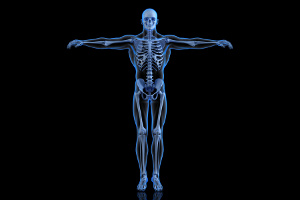 Bone fractures can be fatal, especially in old age where hip fractures typically result in hospitalization and early death. According to a study from Edith Cowan University in Australia, increased intake of vitamin K1 from foods like spinach, cabbage, and other vegetables lowers the risk of bone fractures later in life. Vitamin K1’s positive effect on bone health is linked to the fact that K1 is converted into vitamin K2 in the intestine, and vitamin K2-dependent proteins clear calcium from the bloodstream and embed the mineral in bone tissue.
Bone fractures can be fatal, especially in old age where hip fractures typically result in hospitalization and early death. According to a study from Edith Cowan University in Australia, increased intake of vitamin K1 from foods like spinach, cabbage, and other vegetables lowers the risk of bone fractures later in life. Vitamin K1’s positive effect on bone health is linked to the fact that K1 is converted into vitamin K2 in the intestine, and vitamin K2-dependent proteins clear calcium from the bloodstream and embed the mineral in bone tissue.
 Most cells in the human body need vitamin D. The nutrient also has an important role in preventing symptoms and diseases that may occur after menopause – including osteoporosis, muscle weakness, dry mucosa, mood swings, cardiovascular disease, type 2 diabetes, and cancer. In an article that is published in Frontiers in Physiology, the authors address the widespread vitamin D deficiency that is an overlooked problem in post-menopausal women, and they suggest striving to have optimal vitamin D levels in the blood throughout life.
Most cells in the human body need vitamin D. The nutrient also has an important role in preventing symptoms and diseases that may occur after menopause – including osteoporosis, muscle weakness, dry mucosa, mood swings, cardiovascular disease, type 2 diabetes, and cancer. In an article that is published in Frontiers in Physiology, the authors address the widespread vitamin D deficiency that is an overlooked problem in post-menopausal women, and they suggest striving to have optimal vitamin D levels in the blood throughout life.











 Blood levels of
Blood levels of  An adult contains around one kilogram of calcium, which is the most abundant mineral in the human body. Bones and teeth store around 99% of our calcium and 1 per cent is used to support metabolic functions. Levels of calcium in the blood are tightly controlled, as the slightest deviations may result in serious symptoms of the nervous system and the heart.
An adult contains around one kilogram of calcium, which is the most abundant mineral in the human body. Bones and teeth store around 99% of our calcium and 1 per cent is used to support metabolic functions. Levels of calcium in the blood are tightly controlled, as the slightest deviations may result in serious symptoms of the nervous system and the heart. Many people avoid dairy products because they are lactose intolerant, are vegan, or for other reasons. Milk is a good source of nutrients, especially calcium, but you can easily get enough calcium from other food sources. What is more, it appears that vitamin D, vitamin K2, and the calcium/magnesium ratio is even more important than calcium alone for the structure and maintenance of strong bones. Another thing to remember is that sugar, soft drinks, stimulants, and certain types of medicine can disrupt the bone-building processes. Therefore, having strong bones is about a lot more than dairy products and calcium alone. Finally, don’t forget that daily weight-bearing exercise stimulates bone density.
Many people avoid dairy products because they are lactose intolerant, are vegan, or for other reasons. Milk is a good source of nutrients, especially calcium, but you can easily get enough calcium from other food sources. What is more, it appears that vitamin D, vitamin K2, and the calcium/magnesium ratio is even more important than calcium alone for the structure and maintenance of strong bones. Another thing to remember is that sugar, soft drinks, stimulants, and certain types of medicine can disrupt the bone-building processes. Therefore, having strong bones is about a lot more than dairy products and calcium alone. Finally, don’t forget that daily weight-bearing exercise stimulates bone density. PMS (Premenstrual Syndrome) entails a long list of symptoms such as headaches, mood swings, fatigue, irritability, fluid retention, and a strong craving for sweets and stimulants - and even a desire for divorce.
PMS (Premenstrual Syndrome) entails a long list of symptoms such as headaches, mood swings, fatigue, irritability, fluid retention, and a strong craving for sweets and stimulants - and even a desire for divorce.
 Expecting mothers should pay careful attention to getting enough vitamin D all year round, especially because vitamin D deficiencies are so commonplace, to begin with. Lack of vitamin D at birth and the first years of life is associated with an increased risk of infant hypertension, and the problem can even continue to adulthood. This was shown in a study that is published in the science journal Hypertension. The researchers advise pregnant women to have their vitamin D levels measured, and they even recommend vitamin D supplements for pregnant women and children as a way of preventing elevated blood pressure later in life.
Expecting mothers should pay careful attention to getting enough vitamin D all year round, especially because vitamin D deficiencies are so commonplace, to begin with. Lack of vitamin D at birth and the first years of life is associated with an increased risk of infant hypertension, and the problem can even continue to adulthood. This was shown in a study that is published in the science journal Hypertension. The researchers advise pregnant women to have their vitamin D levels measured, and they even recommend vitamin D supplements for pregnant women and children as a way of preventing elevated blood pressure later in life. Vitamin D’s role in maintaining proper health is well documented. Still, many older people lack the nutrient and that increases their risk of bone fractures, blood poisoning, and disease complications that can eventually lead to hospitalization. Also, they risk prolonged hospitalization according to a new Irish study published in the scientific journal Nutrients. The scientists recommend giving vitamin D supplements to seniors to increase their blood levels of vitamin D. Other studies even suggest that this can protect against COVID-19, as low vitamin D status is associated with an increased risk of being hospitalized with the disease.
Vitamin D’s role in maintaining proper health is well documented. Still, many older people lack the nutrient and that increases their risk of bone fractures, blood poisoning, and disease complications that can eventually lead to hospitalization. Also, they risk prolonged hospitalization according to a new Irish study published in the scientific journal Nutrients. The scientists recommend giving vitamin D supplements to seniors to increase their blood levels of vitamin D. Other studies even suggest that this can protect against COVID-19, as low vitamin D status is associated with an increased risk of being hospitalized with the disease. Recent studies reveal that around 20% of people who take metformin, a drug against type 2 diabetes, are
Recent studies reveal that around 20% of people who take metformin, a drug against type 2 diabetes, are  Calcium and vitamin D normally get all the attention when it comes to bone health. However, magnesium also plays a crucial, but often overlooked, role. This was demonstrated in a large population study that is published in Frontiers in Nutrition. The study links lower dietary magnesium to a greater risk of developing osteoporosis, especially for women aged 55 years and older. Osteoporosis normally takes many years to develop so it is vital to get plenty of magnesium from the diet or from supplements. Also, beware that excessive calcium intake, antacids, and diuretics block the body’s ability to absorb and utilize magnesium.
Calcium and vitamin D normally get all the attention when it comes to bone health. However, magnesium also plays a crucial, but often overlooked, role. This was demonstrated in a large population study that is published in Frontiers in Nutrition. The study links lower dietary magnesium to a greater risk of developing osteoporosis, especially for women aged 55 years and older. Osteoporosis normally takes many years to develop so it is vital to get plenty of magnesium from the diet or from supplements. Also, beware that excessive calcium intake, antacids, and diuretics block the body’s ability to absorb and utilize magnesium. Fragile bones, also known as osteoporosis, is an insidious scourge. Science has its eyes on
Fragile bones, also known as osteoporosis, is an insidious scourge. Science has its eyes on  We consume far too much sugar from candy, soft beverages or in the form of concealed sugar in our food. This impairs the body’s uptake and utilization of
We consume far too much sugar from candy, soft beverages or in the form of concealed sugar in our food. This impairs the body’s uptake and utilization of  The number of Danes suffering from one or several chronic diseases is a lot higher than previously thought, according to a group of scientists behind a new study from Danish Center for Healthcare Improvement at Aalborg University. Diseases such as hypertension, elevated cholesterol, depression, bronchitis, asthma, type 2 diabetes, rheumatism, and osteoporosis are among the most widespread ailments. Although there may be a reason of underlying factors, diet and lack of essential nutrients often play a key role. This is something that we have written about over the years on this website, and we have tried to gather some facts from various articles. Simple diet changes and the use of relevant nutritional supplements may play a key role in the treatment of these chronic ailments that come at a huge price, both to the individual sufferer and to society.
The number of Danes suffering from one or several chronic diseases is a lot higher than previously thought, according to a group of scientists behind a new study from Danish Center for Healthcare Improvement at Aalborg University. Diseases such as hypertension, elevated cholesterol, depression, bronchitis, asthma, type 2 diabetes, rheumatism, and osteoporosis are among the most widespread ailments. Although there may be a reason of underlying factors, diet and lack of essential nutrients often play a key role. This is something that we have written about over the years on this website, and we have tried to gather some facts from various articles. Simple diet changes and the use of relevant nutritional supplements may play a key role in the treatment of these chronic ailments that come at a huge price, both to the individual sufferer and to society. Undernourishment typically affects the elderly, those with diseases, addicts, and people with eating disorders. The condition increases the risk of serious diseases and repeated hospitalizations and is an enormous economic burden to society. Many undernourished people suffer from loss of appetite, a problem that can often be stimulated with improved diets and supplements of
Undernourishment typically affects the elderly, those with diseases, addicts, and people with eating disorders. The condition increases the risk of serious diseases and repeated hospitalizations and is an enormous economic burden to society. Many undernourished people suffer from loss of appetite, a problem that can often be stimulated with improved diets and supplements of According to a large American study, a high dietary intake of vitamin D and calcium is associated with a lower risk of early-onset menopause, where the menstrual periods cease before a woman reaches 45 years of age. Premature menopause affects around 10 percent of women, and the condition increases the risk of impaired fertility, osteoporosis, cardiovascular disease, and earlier cognitive impairment. The prevention of these diseases is also a matter of getting enough sunshine, magnesium, and omega-3.
According to a large American study, a high dietary intake of vitamin D and calcium is associated with a lower risk of early-onset menopause, where the menstrual periods cease before a woman reaches 45 years of age. Premature menopause affects around 10 percent of women, and the condition increases the risk of impaired fertility, osteoporosis, cardiovascular disease, and earlier cognitive impairment. The prevention of these diseases is also a matter of getting enough sunshine, magnesium, and omega-3. Hip fractures are particularly common among older people and are often associated with a number of serious complications. However, seniors that are not vitamin D-deficient may have better chances of walking again after their surgery, according to a new study that is published in the American Journal of Clinical Nutrition. Earlier Danish research even shows that having sufficient amounts of
Hip fractures are particularly common among older people and are often associated with a number of serious complications. However, seniors that are not vitamin D-deficient may have better chances of walking again after their surgery, according to a new study that is published in the American Journal of Clinical Nutrition. Earlier Danish research even shows that having sufficient amounts of  Vitamin K is lipid-soluble and was discovered by the Danish professor and Nobel Prize laureate Henrik Dam. There are three different forms with different functions. Vitamin K1 is primarily found in green plants, whereas vitamin K2 is produced by bacteria, and vitamin K3 is synthetic.
Vitamin K is lipid-soluble and was discovered by the Danish professor and Nobel Prize laureate Henrik Dam. There are three different forms with different functions. Vitamin K1 is primarily found in green plants, whereas vitamin K2 is produced by bacteria, and vitamin K3 is synthetic. Bone fractures can be fatal, especially in old age where hip fractures typically result in hospitalization and early death. According to a study from Edith Cowan University in Australia, increased intake of
Bone fractures can be fatal, especially in old age where hip fractures typically result in hospitalization and early death. According to a study from Edith Cowan University in Australia, increased intake of  "After about one week of taking the Q10 supplement I could feel a huge difference," says 23-year old Alan Piccini, who has been suffering from extreme fatigue and muscle aches ever since he was a child.
"After about one week of taking the Q10 supplement I could feel a huge difference," says 23-year old Alan Piccini, who has been suffering from extreme fatigue and muscle aches ever since he was a child. “Taking capsules with co-enzyme Q10 has freed me of the severe side effects of my cholesterol lowering medicine,” Mrs Franken explains.
“Taking capsules with co-enzyme Q10 has freed me of the severe side effects of my cholesterol lowering medicine,” Mrs Franken explains.